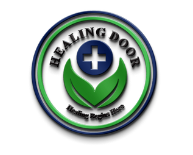Physical And Mental Effects Of Drug Abuse
Drug abuse is a pervasive issue that affects countless individuals and communities around the world. While many are only aware of the immediate consequences of drug use, such as euphoria or altered perceptions. It’s crucial to recognize the profound physical and mental effects that drug abuse can inflict on an individual.
Understanding these repercussions is essential not only for those struggling with addiction but also for society at large.

Physical Effects of Drug Abuse
Drug abuse can cause great damage to the body, leading to various health complications. The physical effects of drug abuse can vary depending on the type of substance used, but some common themes emerge.
Substance-Specific Damage
Different drugs impact the body differently. Opioids, for instance, can lead to respiratory depression, while stimulants can strain the heart. Alcohol abuse can result in liver damage and a host of other issues.
It’s essential to recognize these substance-specific effects to appreciate the full scope of the problem.
Organ Damage
Many drugs, when taken over an extended period, damage vital organs. The liver, heart, and brain are especially vulnerable.
Chronic drug use can lead to conditions like cirrhosis, cardiomyopathy, and cognitive impairments. Overdose is a significant risk, which can be fatal.
Infectious Diseases
Injection drug use poses a substantial risk of contracting infectious diseases, such as HIV and hepatitis, due to shared needles.
Discussing the importance of harm reduction strategies, like providing access to clean needles, is crucial.
Nutritional Impact
Substance abuse often leads to malnutrition due to poor dietary choices and a lack of self-care. Individuals may experience significant weight loss, which can impact physical health and overall appearance.

Mental Effects of Drug Abuse
In addition to the physical toll, drug abuse exerts a substantial influence on mental health. Understanding the mental effects is just as vital as recognizing the physical consequences.
Neurochemical Changes
Drugs alter the brain’s chemistry, affecting neurotransmitters and receptors. These changes can lead to mood swings, impulsivity, and the continued use of the substance to maintain a sense of well-being.
Mental Health Disorders
Substance abuse is closely linked to the development of mental health disorders. Conditions like depression, anxiety, and schizophrenia can be both a cause and a consequence of drug abuse. This interplay is known as dual diagnosis, and it presents unique challenges in treatment.
Cognitive Impairment
Prolonged drug abuse can lead to cognitive deficits and memory problems, which can persist even after cessation. These cognitive impairments may hinder an individual’s ability to lead a productive life.
Withdrawal and Cravings
The psychological impact of withdrawal and cravings cannot be understated. The intense desire for the drug and the physical and mental turmoil during withdrawal are significant factors contributing to relapse, perpetuating the cycle of addiction.

The Interplay of Physical and Mental Effects
It’s crucial to recognize that the physical and mental effects of drug abuse are deeply interconnected. Mental health issues can contribute to addiction, and drug abuse can exacerbate preexisting mental health conditions.
Understanding this dynamic helps inform treatment strategies and interventions.
Prevention and Treatment
Preventing drug abuse involves education, awareness, and early intervention. Communities and healthcare providers play a pivotal role in preventing drug abuse through programs that promote healthy choices, emotional support, and access to treatment.
Rehabilitation centers and therapy are fundamental in addressing the physical and mental aspects of addiction. These facilities provide a holistic approach to recovery, offering medical care, counseling, and support to help individuals overcome the physical and mental challenges that addiction presents.
Conclusion
Healing Door Rehabilitation Centre in Islamabad is the best place for helping people with drug addiction. Drug addiction is a big problem, and Healing Door is the place to get better. They help people with drug problems in many ways, making them healthy and happy.
Healing Door knows that different drugs can hurt your body in different ways. For example, opioids can make it hard to breathe, while stimulants can strain your heart. Alcohol can hurt your liver and other body parts.
The mental and physical effects of drug use are connected. Mental problems can lead to drug use, and using drugs can make mental problems worse. This is why Healing Door is the best place to go because they understand this connection and help people better.
To prevent drug addiction, Healing Door teaches people about the risks of using drugs and helps them make better choices. They also offer support and treatment. Healing Door Rehabilitation Centre does just that. It provides medical care and counseling to help people recover from the problems caused by drug use.
In conclusion, drug addiction is a big problem, and the Healing Door Rehabilitation Centre is the best place to go to get better. We need to raise awareness, prevent drug addiction, and provide good treatment, and Healing Door is a big part of this effort. By supporting people in their journey to recovery, we make them healthier and happier, and that’s what Healing Door is all about.

